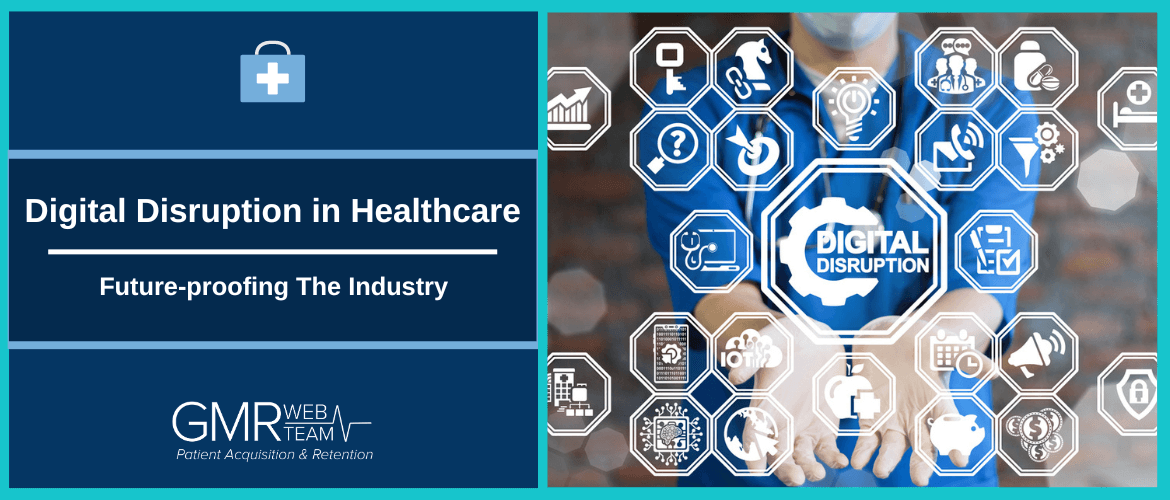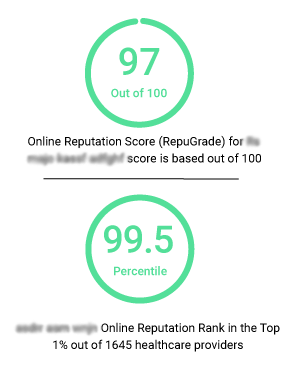Digital Disruption in Healthcare: Future-proofing The Industry

Over the last few years, the healthcare industry has seen a sweeping transformation driven by digital disruption. Technological innovation is a driving force in redesigning traditional practices to enhance the healthcare landscape. With the emergence of artificial intelligence, blockchain, etc., a new freeway has been created for the healthcare industry, which is favorable for patients and practitioners. This article highlights the influence of digital disruption in healthcare and how it is future-proofing the industry.
Digital Disruption in Healthcare and its Key Aspects
Digital disruption in healthcare can be defined as the impact of technological innovations and advancements in shaping the healthcare industry. It draws on integrating digital tools to bring about transformative changes in how healthcare services are delivered, improving overall efficiency and patient experience.
The critical aspects of digital disruption in healthcare include:
# AI in Healthcare
Artificial intelligence has changed the dynamics of every sector, and the healthcare industry is no exception. Examining medical images, pathology reports, and analyzing records of patients has become much more accurate and hassle-free with the use of artificial intelligence. 'Computer-aided diagnostics' assists professionals in early detection and precise diagnosis of diseases, eventually leading to better treatment.
# Emergence of Telemedicine
The massive adoption of telemedicine has immediately impacted healthcare. Telemedicine, or e-medicine, is the virtual delivery of healthcare services like virtual consultations, medical imaging, remote medical diagnosis and evaluations, tele-treatment, medication management, etc., without an in-person visit. A report by McKinsey & Company estimated a spike in telemedicine of 32% in April 2020. The convenience and accessibility of telemedicine have proven central during global health crises, offering a lifeline for patients to receive medical consultations remotely.
# Healthcare Analytics
The data-driven approach can process vast amounts of health-related data for better patient experience, efficient resource allocation, and decision-making within healthcare organizations.
# Wearable Technology and Remote Monitoring
The augmentation of wearable devices like fitness trackers, smartwatches, etc., has pushed individuals to put conscious effort into their healthcare. The real-time data from these devices can be shared with healthcare providers, increasing patient engagement and enabling continuous health tracking for preventive care strategies.
# Blockchain for Enhanced Security
With innovative technology comes intelligent threats. Digital disruption extends beyond enhancing patient care. It also addresses critical issues like data security. Blockchain is a secure way of recording information, which makes it difficult to change, manipulate, or get hacked. It enhances the security and integrity of healthcare records and sensitive patient data.
How is Digital Disruption Reshaping the Healthcare Industry?
Digital Disruption is reshaping the healthcare landscape by redefining the roles of healthcare professionals. Through revolutionized patient care, professionals are experiencing a shift in their traditional way of work. Digital technologies have streamlined the workflow to enhance diagnostic capabilities and curate treatment plans accordingly.
The introduction of advanced tools and innovation in tech, like telemedicine, artificial intelligence, blockchains, etc., have empowered professionals to create a more interconnected, data-driven, and patient-centric healthcare system for improved patient care.
How does Healthcare need to Adopt Consumer Tech's Pace of Innovation?
Healthcare is encountering a notable challenge in maintaining its stride with the swift innovations witnessed by consumer technology. While sectors like smartphones and entertainment continuously introduce groundbreaking advancements, healthcare systems often need more infrastructure and a laggard approach to technology adoption. By leveraging the agility of consumer tech to improve patient care, streamline processes, and facilitate seamless communication between healthcare providers and patients, the healthcare sector can reach transformative potential.
Strategies for Providers: Navigating Healthcare Digital Disruption in Practice
#1. Digital Evolution in Healthcare Delivery
Digital health startups use cloud computing, AI, telehealth, and more to enhance care at lower costs. The rapid evolution in healthcare delivery requires practitioners to invest in next-gen technology to stay competitive.
#2. Strategic Administrative Modernisation
Providers must consider administrative modernization efforts to meet evolving market demands. A clear modernization strategy is crucial to refrain from investing in short-term fixes that won't support future digital healthcare needs.
#3. Agile Transition to Next-gen Technology
Transitioning from legacy to next-gen technology requires a flexible and agile approach. Providers need solutions that are adaptable to the evolving health ecosystem demands.
#4. Meeting Interoperability Challenges
The Interoperability and Patient Access Rule increases pressure on providers lacking up-to-date solutions. Legacy administrative systems need updates for security, data standardization, and interoperability.
#5. Strategic Technology Partnership
Administrative success requires a trusted technology partner for scoping future goals and removing outdated tools. The partner should guide the transition to next-gen solutions, ensuring adaptability to changing regulations and care models.
#6. Real-Time Data Access and Insights
The demand for real-time health information challenges the health ecosystem. Practitioners need administrative capabilities for exceptional data integrity, insights, and access.
#7. Empowering Stakeholders through Personalization
Stakeholders, including consumers, demand personalized health-related inputs and more control. Practitioners must provide tools for personalization and ease of business for all stakeholders.
#8. Driving Digital Adoption and Decision Making
Varied digital adoption speeds across the health ecosystem lead to information flow disruptions. Outdated systems hinder real-time decision-making, creating gaps and delays and impacting the quality of care.
#9. Adapting Legacy Systems to Digital Contributors
The shift towards digital contributors requires practitioners to move away from legacy systems. Digitally responsive, intelligent administrative operations are vital for adapting to ongoing disruption.
#10. Enhancing Engagement through AI-Integrated Data Management
AI-driven data management enhances member engagement and proactive outreach. Practitioners can leverage AI to guide users through recommended health actions.
Conclusion
The evolving landscape of healthcare demands strategic responses from healthcare practitioners and providers, ranging from embracing digital evolution and modernizing administrative processes to ensuring real-time data access and fostering AI-integrated engagement. The need for a trusted technology partner to navigate these changes successfully is unquestioned.
For comprehensive and effective implementation of these strategies, contact our experts at GMR Web Team. Elevate your healthcare operations with cutting-edge solutions and stay ahead in the dynamic digital healthcare ecosystem.
Contact us today to embark on a journey of transformative healthcare excellence.
Comments are closed


